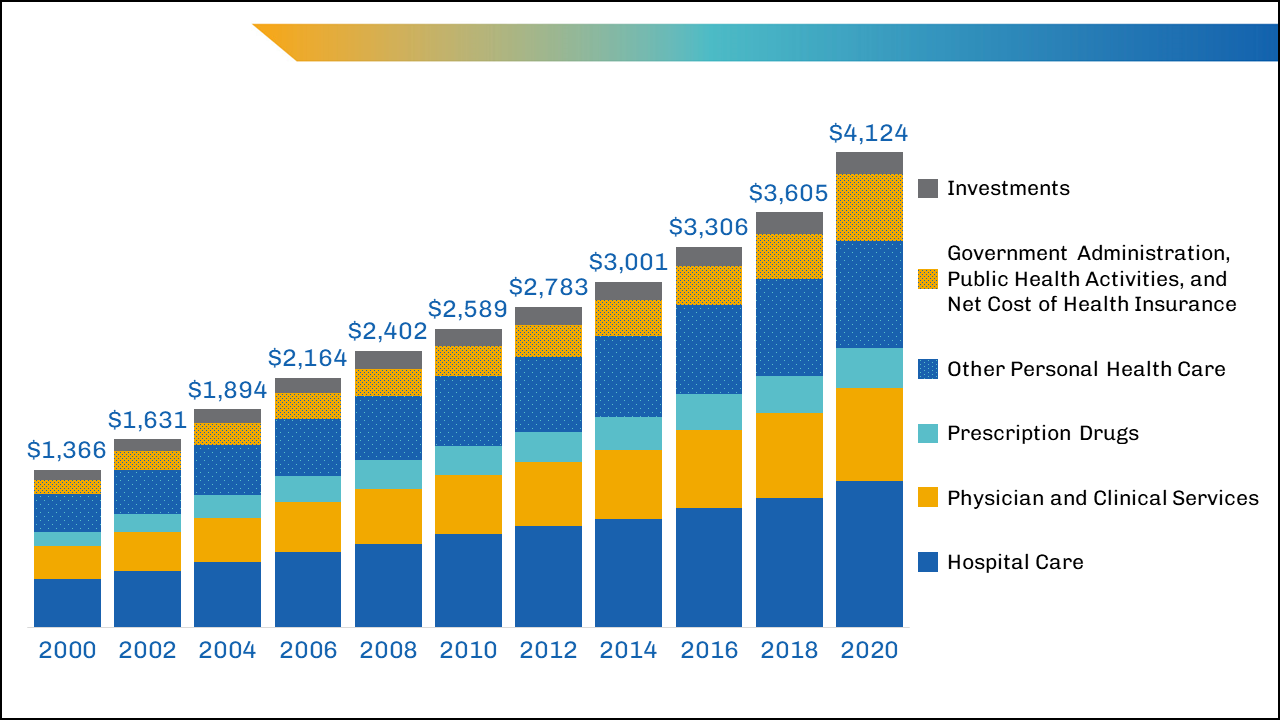Why Healthcare RCM is Vital for Financial Wellness in Medical Practices
Why Healthcare RCM is Vital for Financial Wellness in Medical Practices
Blog Article
A Comprehensive Overview on How Medical Care RCM Works to Enhance Billing and Collections
Navigating the complexities of medical care profits cycle administration (RCM) is crucial for providers intending to boost their invoicing and collections processes. The guide unboxes the intricacies of RCM, from person registration to accounts receivable monitoring, providing understandings into maximizing each action.
Understanding Income Cycle Monitoring
RCM is a critical management function that includes the whole economic procedure of individual treatment, from the first consultation setting to the last repayment of the balance. It is a complicated procedure designed to recognize, gather, and take care of the profits from the services provided to individuals.
The RCM process starts when a client timetables an appointment and extends with the client's care journey, including payment and collections. A key purpose is to decrease the time in between obtaining and supplying a service payment, therefore improving the organization's monetary wellness. RCM entails various functions such as individual enrollment, insurance coverage confirmation, cost capture, coding, declares submission, settlement uploading, and handling rejections and charms.
Secret Components of RCM
In the world of Earnings Cycle Management (RCM), understanding its key elements is fundamental to achieving monetary efficiency within health care companies. RCM is a detailed procedure that incorporates different phases, each critical to making sure reliable invoicing and collections. The main components include patient enrollment, insurance coverage confirmation, cost capture, coding, claim entry, repayment uploading, and balance due management.


As soon as coded, cases are sent to payers, where precision is paramount to avoid delays or denials - Healthcare RCM. Payment publishing includes taping the gotten repayments, which permits the reconciliation of accounts. Last but not least, receivables monitoring concentrates on monitoring and addressing unsettled cases, making certain prompt follow-up and resolution
Each component of RCM is adjoined, and inadequacies in any kind of component can interfere with the entire cycle. For that reason, mastering these components is crucial for doctor to optimize profits and improve their monetary wellness.
Methods for Efficient Payment

Systematizing billing procedures throughout the organization is one more vital approach. Developing clear standards for documents, coding, and submission assists preserve uniformity and compliance with regulative needs. Educating personnel on a regular basis on these procedures makes sure every person is current with the current changes in billing codes and payer plans.
Accurate cost capture is essential in protecting against revenue leak. Applying normal audits and monitoring systems enables for the identification and modification of inconsistencies before they affect revenue. Furthermore, maintaining open lines of interaction with payers assists his comment is here to swiftly fix any type of disputes or misunderstandings that may occur.

Last but not least, appealing people early in the invoicing procedure by giving clear quotes and instructional products regarding their financial duties can dramatically lower complication and enhance repayment timeliness. These strategies collectively add to a much more efficient and monetarily healthy and balanced invoicing system.
Enhancing Collections Procedures
Offered the intricacies of clinical billing and the range of payer needs, boosting the collections procedure entails applying critical steps that ensure prompt and exact payment of services made. Automation devices can assist in tracking case conditions, sending out timely tips to clients, and managing rejections much more efficiently.
Training personnel to understand the subtleties of insurance coverage and payment codes is just as essential. This knowledge equips them to attend to payment you can try these out disparities rapidly and interact efficiently with clients concerning their monetary obligations. Furthermore, transparent and clear person interactions are important. Supplying thorough descriptions of costs and offering flexible repayment strategies can raise patient fulfillment and punctual settlements.
Regular audits of the collections process should be carried out to determine locations for renovation and guarantee compliance with guidelines. By analyzing information, health care organizations can identify trends, prepare for potential concerns, and adjust methods appropriately (Healthcare RCM). Eventually, a well-enhanced collections process not just sustains financial health however likewise contributes to an extra smooth experience for individuals and staff alike
Optimizing Earnings Streams
Structure upon the structure of a solid collections procedure, health care companies can better reinforce their economic security by tactically optimizing profits streams. This entails a multi-faceted method, beginning with a thorough evaluation of existing profits sources to recognize ineffectiveness and areas for growth. Employing sophisticated information analytics tools allows organizations to get understandings right into payer mix, client demographics, and service utilization patterns, enabling for data-driven decisions that enhance revenue capture.
Implementing automated payment systems can dramatically minimize mistakes and speed up insurance claims processing, ensuring that earnings is accumulated a lot more effectively. Furthermore, optimizing payer agreements through normal negotiations can improve repayment prices and terms, straight affecting the bottom line. Branching out solution offerings, such as integrating telehealth or health care, can also draw in a wider client base, thus enhancing profits potential.
One more crucial element is improving patient interaction and contentment, as pleased people are most likely to stick to therapy strategies and make timely settlements. Using flexible repayment options and transparent billing methods can enhance collections and foster patient loyalty. Healthcare Read Full Article RCM. By taking on these approaches, medical care organizations can create a much more durable monetary structure, making certain continual development and security in an ever-changing industry landscape
Verdict
In verdict, health care Income Cycle Administration (RCM) plays an important role in maximizing invoicing and collections procedures by incorporating essential components such as individual enrollment, insurance coverage verification, charge capture, coding, claims entry, and balance due administration. By employing innovative technology, systematizing procedures, and fostering individual interaction, doctor can significantly decrease claim rejections, accelerate settlement cycles, and enhance cash money flow. This extensive method to RCM eventually results in enhanced economic effectiveness and sustainability for health care companies.
The RCM process begins when a patient timetables a visit and extends through the client's treatment journey, including billing and collections.Another important component is boosting client interaction and complete satisfaction, as satisfied clients are extra most likely to adhere to treatment plans and make prompt settlements. Providing versatile settlement options and transparent payment methods can boost collections and foster individual loyalty.In verdict, healthcare Income Cycle Monitoring (RCM) plays an important duty in enhancing payment and collections procedures by incorporating key components such as individual enrollment, insurance verification, cost capture, coding, asserts submission, and accounts receivable administration. By using advanced modern technology, systematizing procedures, and fostering person engagement, healthcare carriers can dramatically reduce case denials, accelerate payment cycles, and improve money flow.
Report this page